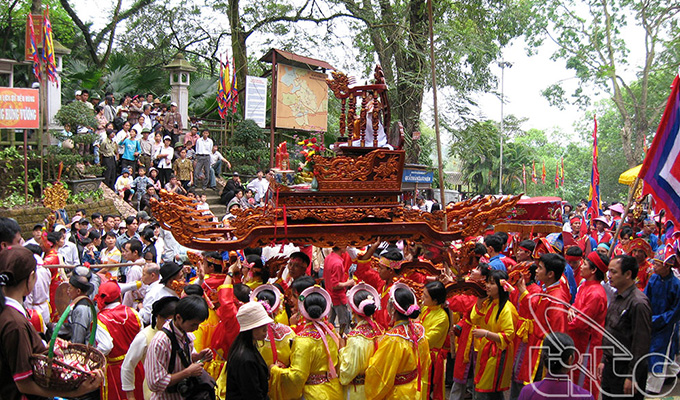The northern province of Phu Tho on May 23 officially publicised a Prime Minister-approved plan on preserving and promoting the values of the Hung Kings Temple relic site until 2025.

Under the plan, signed off by the Prime Minister on April 21, the special national relic site has an area of 845 hectares in Hy Cuong and Chu Hoa communes and Van Phu ward of Viet Tri city, Thien Kien commune of Lam Thao district, and Phu Ninh commune of Phu Ninh district.
It includes a 32.2-hectare core area where most of ancient buildings are located, including Den Thuong (Upper Temple), Den Trung (Middle Temple) and Den Ha (Lower Temple), Gieng Temple, Hung Kings Tombs, Thien Quang Pagoda, and a bell tower. The status quo of this area will be completely preserved.
The buffer zone, surrounding the core area, spreads across 812.8 hectares, comprising Van and Troc Mountains, the central area of the Hung Kings Temple Festival, the landscape of Ho Mau (Mother Lake), Hung Kings Temple National Park, the northern landscape, Hung Kings Tower, a martyr memorial, the temple of the first Hung King’s father Lac Long Quan, and a residential area.
The plan is meant to protect, restore and bring into play the values of the Hung Kings Temple relic site’s history, natural landscapes and environment. It maps out orientations for the management, construction, and rehabilitation of the site as well as the promotion of its values.
It also aims to create spaces to pay tribute to the Hung Kings and prominent figures during the Hung Kings era, thus educating people on patriotism and national solidarity as well as promoting it as a spiritual tourism destination.
The Hung Kings are the legendary founders of Viet Nam. They are believed to rule the country for 18 generations. To honour the Hung Kings, a complex of temples dedicated to them was built on Nghia Linh Mountain, and the tenth day of the third lunar month serves as their anniversary.
The worship of the Hung Kings are closely related to the ancestral worship traditions of most Vietnamese families, an important part of people's spiritual life. It was recognised as UNESCO Intangible Cultural Heritage of Humanity in 2012.